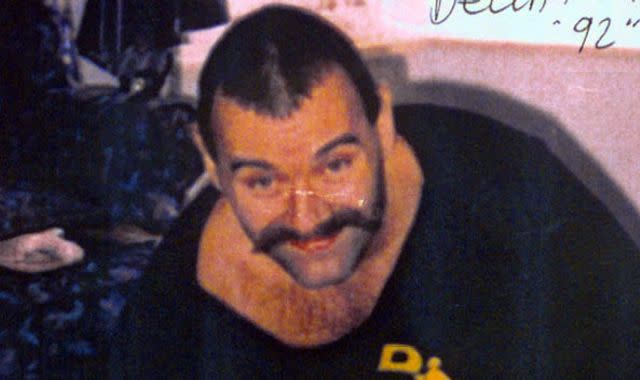Charles Bronson has never used a cash machine and would need practical support if released, expert reveals

A parole board for notorious prisoner Charles Bronson has heard he has never used a cash machine and has mild symptoms of post-traumatic stress disorder (PTSD), as a public hearing enters its second day.
Bronson, now known as Charles Salvador, argued previously on Monday that after nearly half a century in jail, most of it in solitary confinement, he is safe to be released.
On Wednesday, as his parole hearing continued, an independent psychologist employed by Bronson's legal team, told the hearing that his mild PTSD symptoms are partly due to some "brutal and unacceptable treatment" while in the prison system.
The 70-year-old has previously been diagnosed with anti-social personality disorder and is "naturally somewhat suspicious of other people's motives".
The psychologist went on to say: "He feels like the whole system is about humiliating and degrading him."
She added that Bronson would need practical support if released and revealed he had never used a cash machine.
She believes that he should be moved to a prison with open conditions, to allow him more interaction with other people, adding there would not be an "escape risk".
Read more:
Who is Britain's most notorious prisoner and why has he been in jail for so long?
Britain's most notorious prisoner tells parole hearing he 'couldn't stop taking hostages'
'Serious thought' should be given to moving him to open prison
Continuing to deliver her assessment of Bronson, the psychologist said that she believes "that Mr Salvador poses less of a risk in a community environment than in a prison environment".
She said his violence towards prison staff was fuelled by a dislike of authority figures and that it did not extend to members of the public.
But the psychologist said that her view is he should be kept in prison with a step down in security, with "serious thought" being given to eventually moving him to an open prison.
The psychologist emphasised that having found violence cathartic in the past, Bronson now manages his risk through art, breathing and mindfulness techniques.
Wearing a black T-shirt with white writing and his trademark dark, round glasses, Bronson could be seen rocking back and forth on his chair as the psychologist gave evidence.
At one point, interrupting the psychologist who described him as a "retired prison activist", he said: "It's the best thing I've ever heard."
While in prison, Bronson has held 11 hostages in nine different incidents - with victims including governors, doctors, staff and, on one occasion, his own solicitor.
Addressing this on Monday, Bronson told the hearing: "I went through a phase, I couldn't help taking hostages. I was battling against the system... it was my way of getting back.
"There's nothing better than wrapping a governor up like a Christmas turkey."
'Ability to progress'
During the hearing's second day, Bronson could be heard muttering things under his breath and sighing loudly, but remained largely silent.
The psychologist pointed to the fact that he has had no outbursts, suggesting it shows his "ability to progress" if offered the right things.
Click to subscribe to the Sky News Daily wherever you get your podcasts
She said that he will be rude to, and swear at people on occasion, but in the past he would not have been able to tolerate the parole hearing.
As the psychologist's evidence came to a close, Bronson commented of the hearing: "It's like being on The Apprentice (with) Lord Sugar."
In order to boost his chances for parole, the prisoner launched an exhibition selling a variety of cartoonish drawings that often depicted a nightmarish view of his own life.
On Wednesday, he replied "fantastic" after the chairman agreed he could hand over some of his images to parole board members for them to look over.

 Yahoo News
Yahoo News 
